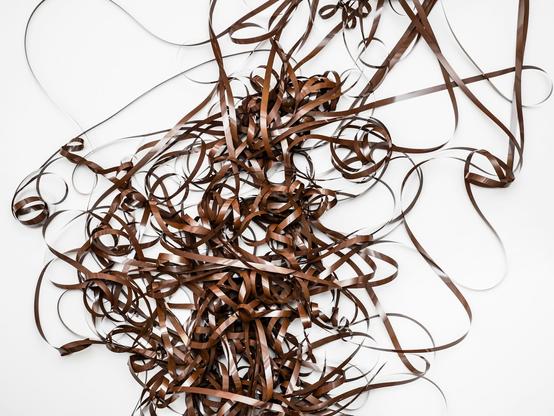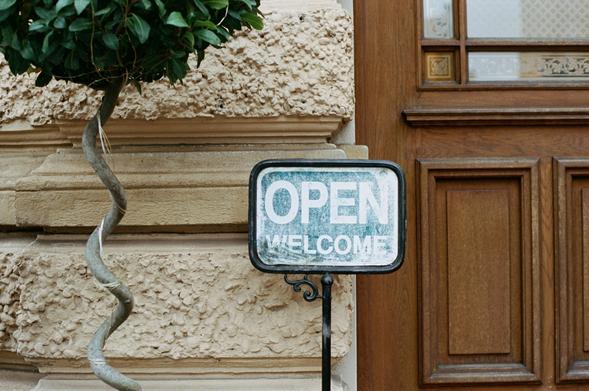[BLOG] Scoping PhD Theses: Some initial reflections
Find out more about our scoping of practices around PhD eTheses, with a focus on #archiving and #preservation
https://copim.pubpub.org/pub/scoping-phd-theses-initial-reflections-wp7/

[BLOG] Scoping PhD Theses: Some initial reflections
Find out more about our scoping of practices around PhD eTheses, with a focus on #archiving and #preservation
https://copim.pubpub.org/pub/scoping-phd-theses-initial-reflections-wp7/

[BLOG] Putting the 'Open' in 'Thoth Open Archiving Network'
Our Archiving group announce a new direction for our #OpenAccess archiving solution
"The Department of Government Efficiency (DOGE) announced Monday that the General Services Administration converted 14,000 magnetic to digital records, and claimed the process saved a million dollars a year.
@DOGE on X: The @USGSA IT team just saved $1M per year by converting 14,000 magnetic tapes (70 yr old technology for information storage) to permanent modern digital records.
The problem is, magnetic tapes are regarded by storage and archivist professionals as being a stable, reliable, and safe medium for long-term data storage. Just because it’s a 70 year old medium doesn’t mean those records needed a massive overhaul to digital, that it will save any money in the long term, or that the new storage method is better.
Casual storage enjoyers might hear tape and think fragile spools of plastic that can rot or wear out. But digital storage is not necessarily a better option if you’re trying to keep information for years; digital storage rot, or “bit rot,” can affect a hard drive over years of storage, making the data corrupt or inaccessible. This happens when the electrical charge inside a solid-state storage device—like the kind of digital drive we can assume DOGE is talking about—leaks and causes the drive to lose performance."
https://www.404media.co/doge-gsa-magnetic-tape-archives-digital-storage/

[NEW BLOG] Scoping PhD Theses: some initial reflections
Our initial scoping begins to lift the lid, providing a view to #archiving and #preservation practices surrounding eTheses in the UK
https://copim.pubpub.org/pub/scoping-phd-theses-initial-reflections-wp7/

One of the few bonuses of working in a university is that you get full access to the library. I wanted to read an obscure article from an obscure journal printed in 1985. No electronic copy exists online. I requested it on the uni library website and someone went down to the archive, found the article, scanned it and emailed it to me a couple of hours later. Now I've got a taste for it. I'll be sending them off to scan all manner of old articles #library #libraries #Librarians #archive #archiving #research
New extended blog post by
@copim 's Archiving group, in which we identify a list of features that are deemed essential for archiving solutions to account for the specifics of #openacces content, including #OAbooks.
#MetadataMatters #archiving #transparency #openarchiving
https://copim.pubpub.org/pub/thoth-open-archiving-network/release/1

The ArchiveTeam Warrior has been running intermittently on my laptop for ten days now.
It downloads stuff and puts it into the Internet Archive.
Everything's fine. It only runs while I use the laptop. I don't notice it. When the laptop goes into standby and wakes up again that doesn't seem to have any adverse effects.
I've downloaded and uploaded gigabytes so far. The top of the leader board for this project is half a petabyte.
Now I'm considering a installation where it could run around the clock. I don't want to increase our household's standby energy consumption too much, so I will see how that goes.
#archiving
#internetArchive
#DataRescue
#dataPreservation
#digtitalPreservation
#archiveTeamWarrior
#archiveTeam
Salon Series 54: Palestine in Print: Publishing and Archiving as Tools for Resistance
Ren Allathkani, MJ Fair, Nicole Kaack, and Kate Laster
Thu, Apr 3, 2025 at 6:00pm–7:30pm PT
Jewish and Palestinian artists and archivists examine the critical role of print media in protecting and archiving endangered voices, histories, and traditions.
Register to attend online or in person: https://letterformarchive.org/shop/salon-series-54-palestine-in-print-publishing-and-archiving-as-tools-for-resistance/?utm_source=Mastodon
(Images: Kate Laster)
Question re #SafeguardingResearch
We encounter 'web applications' that our current method of archiving don't preserve.
Things like [we need a better example, this one is already gone (but the data preserved) https://social.coop/@edsu/114206452552797815]
We are mostly using https://github.com/openzim/zimit to create WARC files and combining them into a single ZIM.
(This uses the browsertrix crawler)
Any ideas on how to archive not just the content, but also the functionality of such applications?
#DigiPres #Web #Archiving
Installed and started the ArchiveTeam Warrior. Very smooth experience.
It downloads stuff and puts it into the Internet Archive.
I took the "ArchiveTeam’s Choice" project and it chose public telegram channels. It's not taking a lot of bandwidth or memory or space or computing, as far as I can tell. It might take too much of my time and focus if I continue staring at the dashboard to try and figure out what all that stuff is.
New blogpost about #Obsidian as a digital community archiving tool.
I describe a collaborative way to record information, in an intuitive text format (markdown) and live visualization as a network graph:
If someone needs to backup all USDA SNOTEL data (as climate adjacent) and therefore "reasons", here is gist using my {snotelr} #rstats package.
https://gist.github.com/khufkens/b13b28068ddfd8a20d130abe2c95d49a
@gutenberg_org @internetarchive is anyone doing anything about the idea of including the codec with the scan for future future generations? I love digital archiving but at the same time there are already videos in my own archive that I can no longer easily decode.
#software #codec #transcoding #archiving #archival #digitalArchaeology
Just discovered ArchiveBox — FOSS, self-hosted internet archiving.
The way the web is going, with the US government redacting and outright erasing historic content, publishers segmenting content by region (and also sometimes redacting/censoring it), and CloudFlare shitting all over everything, I think it's time for me to start my #archiving and #DataHoarding journey.
- I've setup a VNET thick jail on my FreeBSD NAS.
- The jail has its own IP address on my LAN.
- I declared a devfs ruleset to unhide /dev/tun* for the VNET jail.
- I installed Wireguard in the jail.
- I enabled Wireguard with a ProtonVPN configuration.
- I installed qbittorrent-nox and configured it to use the Wireguard interface.
I now have a home ISP-proof qBittorrent setup with which to torrent Anna's Archive.
#AskFedi
How to archive Google Group messages? I want to archive #BosNet messages (which were copied into GG), retaining the thread structure, if possible, but if not, an enormous PDF would be better than nothing.
HOW? Can I plug the group page into the WayBack machine, or would that just save the one page? Would ArchiveWeb.page do this?
Also found the direct link to bit.listserv.bosnet and many others, but can't open the link w/o a reader.
#archiving #ArchiveWeb #UseNet #Bosnia #BalkansNet
Archiving Gmail - help?
I want to download all of my email from the beginning of my account until 2023 and then wipe it off the Gmail servers. I am not sure how to do this, because every solution I have found so far will synchronize my storage solution to my Gmail acocunt.
With Thunderbird I can go POP to delete all new incoming messages, but that is kind of the opposite of what I am looking for.
Ideas?
#email #privacy #archiving
Syncing the last two good Wikimedia XML data dumps. It's been almost two days. It was at 96% 10 hours ago. The bar keeps raising because it hasn't accounted for all the files that are going to be transferred yet lol.
@jalefkowit I now wonder if the wires-soldered-to-the-VCR trick could pick up chroma dot information. Looking at you, Year of the Sex Olympics
https://en.wikipedia.org/wiki/The_Year_of_the_Sex_Olympics#Production
What technology would you suggest I use to start building a web-based log/database of things in my collection/archive?
These range from books to prints to original artworks to stickers and even small physical objects.
I was looking at Zotero, which ticks a few boxes, but would prefer something that's a bit more stripped back in terms of detail, and works for a wider range of items.
Can be self-hosted, although I don't have a huge budget.